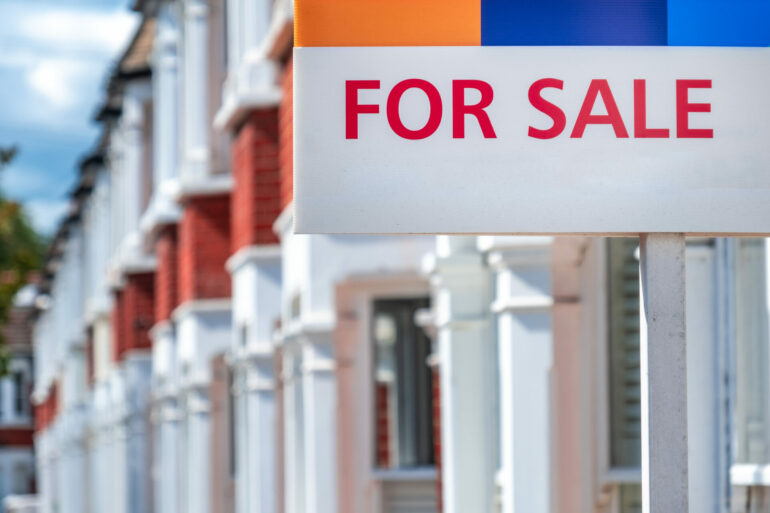The average house price won’t hit the £300,000 threshold until August 2025, according to new research from easyMoney.
The research revealed how the UK property market has performed since the 1970s based on analysis of historic data and the speed at which it has surpassed each £50,000 house price threshold.
The data shows that the UK’s average house price hit the £10,000 mark for the first time in January 1976.
From there, it took 12.5 years, for this average to increase to £50,000 which it did in July 1988.
It then took 13.6 years for the average price to climb from £50,000 to £100,000, which it reached in February 2002.
However, the average UK house price then reached the £150,000 benchmark by August 2004, taking just 2.5 years.
When this financial crisis hit in 2008, it resulted in a slowing of house price growth in the UK to the extent that it took another 11 years to reach the £200,000 milestone, which it did in July 2015.
Following the financial crisis, the subsequent market recovery, it took just 5.6 years to reach the next milestone of £250,000 in March 2021.
This rapid growth was very much fuelled by the pandemic house price boom starting in the summer of 2020.
Today, the average house price in the UK sits just shy of £290,000, so one would think that the next milestone of £300,000 will imminently be upon us.
However, due to cooling market conditions, easyMoney estimates that it will actually take until the end of August 2025 to reach the £300,000 mark.
This would mean a space of 4.4 years between the £250,000 and £300,000 thresholds.
It’s worth noting that, despite today’s cooling conditions, this is still less than the 5.6 years it took for the average price to grow from £200,000 to £250,000.
Jason Ferrando, CEO of easyMoney, said: “On a short-term basis, the UK housing market is certainly susceptible to wider economic ebbs, flows, and woes.
“But when you step back and look at the market’s long-term performance, it’s clear how strong, reliable, and resilient UK housing is as an investment asset.
“As such, if investors are attracted to the property market, we would encourage them to shake off any concerns about the immediate economic landscape and instead look at long-term performance and consistency of the market’s performance over the last 50 years.”



